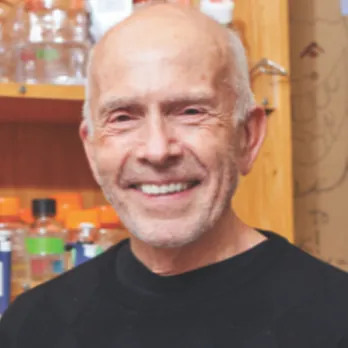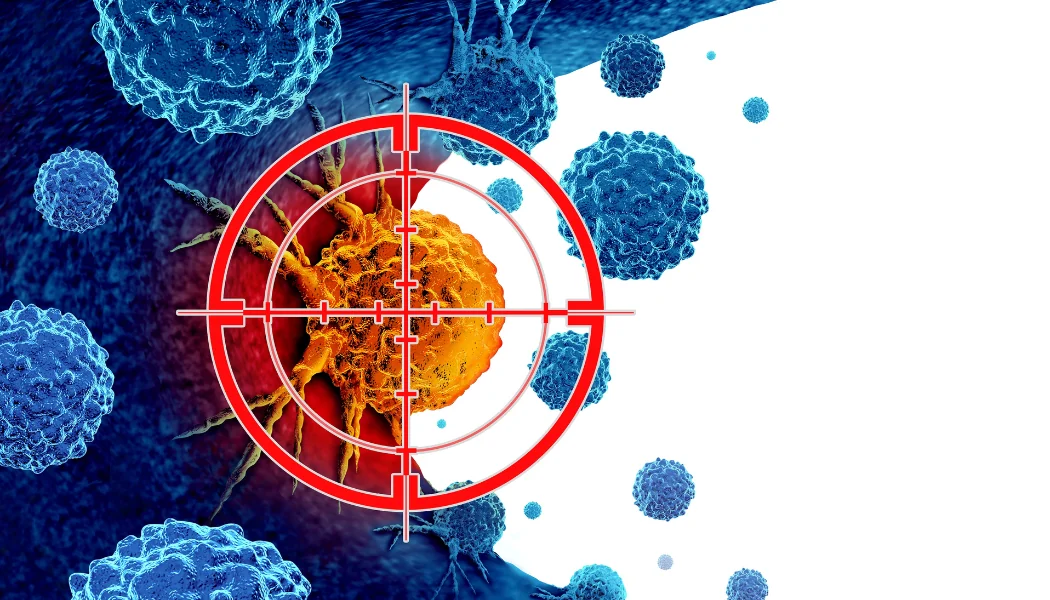Scripps Research
San Diego, California
Cancer-Types Supported
Click a cancer type below to learn more:
Credentials
Ernest and Jean Hahn Professor at the Skaggs Institute for Chemical Biology

Research Projects
Click here to read about Dr. Schimmel’s latest published work supported by NFCR
One of the most fundamental questions facing scientists today is how seemingly normal cells become cancerous. To better understand how this happens, Dr. Paul Schimmel has dedicated more than 40 years to examining the minute forms and intricate functions of molecular biology.
Dr. Schimmel, a world-renowned biophysical chemist and pioneer in translational medicine, developed the concept of expressed sequence tags in 1983, an approach employed for the Human Genome Project. During his career-long study of essential enzymes, he worked on an enzyme-directed genetic code, known as aminoacyl-tRNA synthetase (aaRS). Humans express 20 different aaRS enzymes, each playing a pivotal role in gene expression. With NFCR funding since 1994, Dr. Schimmel has advanced our understanding of the important role these essential enzymes play in defining the genetic code. Strong associations of some of these enzymes to human diseases has been revealed as well. These associations are now believed to be related to new functions of these proteins studied by Schimmel and collaborator, NFCR-supported scientist, Dr. Xiang-Lei Yang. It now appears that, with these proteins, treatable diseases include chronic and acute inflammation, neuropathy, and cancer progression and metastasis.
One aaRS, SerRS, possesses both anti-tumor and anti-metastasis properties. The scientists showed that SerRS inhibits a pro-cancer gene that triggers release of VEGF, a blood vessel formation factor. Without their own blood supply, tumors are deprived of oxygen and nutrients required for growth. In addition, they discovered that SerRS regulates many immune system-related molecules, implicating a role of SerRS in cancer metastasis.
This research is being conducted in triple negative breast cancer models and tissue samples from patients. They have discovered the expression of SerRS positively correlates with greater survival in breast cancer patients. The results also demonstrate SerRS is significantly downregulated during metastasis, suggest that SerRS is a suppressor of breast cancer and its metastasis. Similar findings of SerRS expression has been found in tissue samples of brain, esophageal, kidney (clear cell), rectal, stomach, and thyroid cancers. Their significant research may lead to novel therapeutic applications for these cancers.
Dr. Schimmel’s team discovered that one type of tRNA – TyrRS – plays an important role in platelet production and maintenance. Platelets are the tiny blood vessels responsible for forming blood clots; they are often damaged during chemotherapy and cause dangerous bleeding disorders. Dr. Schimmel’s team is developing a TyrRS-based treatment that corrects this damaging side effect.
Background
Paul Schimmel, Ph.D., is a biophysical chemist and he received his B.A. in biochemistry and biophysics from Ohio Wesleyan University in 1962, and then went on to earn his Ph.D. from Massachusetts Institute of Technology (MIT). Currently, Dr. Schimmel is the Ernest and Jean Hahn Professor of Molecular Biology and Chemistry at The Skaggs Institute for Chemical Biology at Scripps Research. He formerly was the John D. and Catherine T. MacArthur Professor of Biochemistry and Biophysics in the Department of Biology at MIT. He is now MacArthur professor emeritus.
Throughout his career, Dr. Schimmel has received numerous honors and awards, including: the American Chemical Society’s Pfizer Award in Enzyme Chemistry, the Biophysical Society’s Emily M. Gray Award for Significant Contributions to Education in Biophysics, the Chinese Biopharmaceutical Association Brilliant Achievement Award, the Stein and Moore Award of the Protein Society, the American Chemical Society Kathryn C. Hach Award for Entrepreneurial Success, and the ARCS Foundation Scientist of the Year. He is an elected member of the American Academy of Arts and Sciences, the National Academy of Sciences, the American Philosophical Society, the National Academy of Medicine, and the National Academy of Inventors. He has also been active in many scientific and academic organizations and committees, including serving as Chairman of the Division of Biological Chemistry of the American Chemical Society. In addition to these honors and positions, Ohio Wesleyan University (his undergraduate alma mater) conferred on him an honorary Doctor of Science Degree.
Dr. Schimmel has given many honorary lectures, including the Peter Debye Lectures (Cornell University), the Sherman Beychok Lecture (Columbia University), the Reilly Lectures (University of Notre Dame), the Mildred Cohn Lecture (University of Pennsylvania School of Medicine), the University Lecture Series (University of Texas Health Sciences Center (Dallas), the Stanley Gill Memorial Lecture (University of Colorado), the Sir Hans Krebs Lecture (Sheffield, UK), the Nucleic Acids Award Lecture (Biochemical Society and Royal Society of Chemistry, UK), Henry Kamin Lecture (Duke University), the Perlman Lecture Award (American Chemical Society) and the Marker Lecture Series (Pennsylvania State University).
Dr. Schimmel is the author or co-author of more than 500 scientific papers and a widely used three-volume textbook on biophysical chemistry, and he served on the editorial board for numerous scientific journals.
Collaborator:
Our approach emphasizes a collaborative, team environment to accelerate new breakthroughs.
Accelerate innovative research like this and help save cancer patient lives.
Research Focus Areas
Select a Focus Area Below to learn more and see others working in these area.















